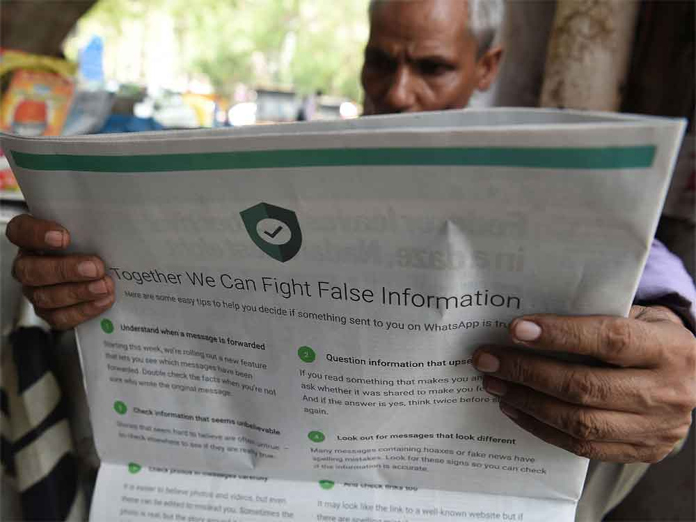Live
- Political heat rises over Adani indictment in AP
- Excise police arrest five, seize 1.1 kg ganja
- GRP nabs one, recovers gold ornaments worth Rs 21 lakh
- Design conclave held at T-Hub
- EAGLE eye on drug menace
- Let’s return to our roots, Venkaiah Naidu tells people
- TG has 234 enemy properties; RR district tops the list
- MEIL dispatches refinery equipment for Mongolia
- 265 SCTPCs take oath in Rachakonda
- Commissioner CV Anand urges dedication as 747 SCTPCs take oath
Just In

Older adults are more likely to share links to fake news sites on Facebook and other platforms than younger people, a United States study has found
Older adults are more likely to share links to "fake news" sites on Facebook and other platforms than younger people, a United States study has found.
The study, published in the journal Science Advances, showed that only a small percentage of Americans - less than nine per cent - shared "fake news" links on Facebook during the 2016 presidential election campaign.
However, the researchers from New York University and Princeton University in the US showed that the behaviour was disproportionately common among people over the age of 65.
“Despite widespread interest in the fake news phenomenon, we know very little about who actually shares fake news,” said Joshua Tucker, a professor at NYU.
“Perhaps most significantly, we find that sharing this type of content on Facebook was a relatively rare activity during the 2016 presidential campaign,” Tucker said.
Among the overall sample of study participants, drawn from a panel survey conducted by the polling firm YouGov, only 8.5 per cent shared links from fake news sites via Facebook.
Just three per cent of those aged 18-29 shared links from fake news sites, compared with 11 per cent of those over age 65. The association with age appears to be independent of respondents' ideological or partisan affiliations.
“If seniors are more likely to share fake news than younger people, then there are important implications for how we might design interventions to reduce the spread of fake news," said Andrew Guess, an assistant professor at Princeton University.
Researchers outlined how the correlation with age could reflect differences in more fundamental traits or skills -- such as digital media literacy -- that are theoretically related to social media sharing behaviour. Exploring these possibilities, they note, should be a focus of future research.
Jonathan Nagler, a professor at NYU, said that teaching digital literacy in schools -- no matter how beneficial that might be for other reasons -- is unlikely to fully address the sharing of fake news if such sharing is more prevalent among older citizens.

© 2024 Hyderabad Media House Limited/The Hans India. All rights reserved. Powered by hocalwire.com







